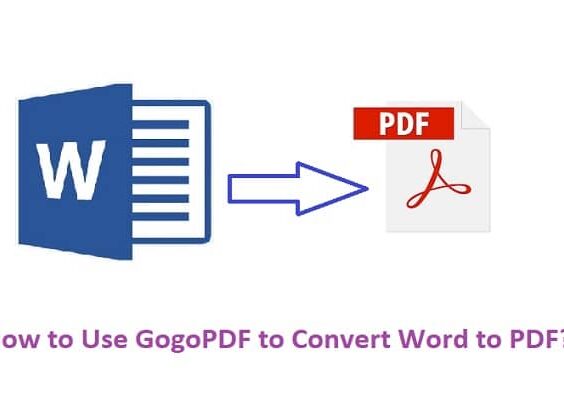In a fast-paced world where time is money and efficiency is key, insurance agents must constantly strive to boost their productivity in order to stay ahead of the competition. The insurance industry is evolving rapidly, with new technologies and changing consumer demands reshaping the way agents operate. To thrive in this dynamic landscape, it’s crucial for insurance professionals to adopt innovative strategies and tools that can supercharge their productivity levels.
Contents
Intro: Challenges in insurance agent productivity
Insurance agents face numerous challenges that can impact their productivity. One key challenge is the time-consuming nature of manual administrative tasks, such as data entry and paperwork management, which can take away from valuable selling time. Additionally, staying up to date with changing regulations and industry trends requires continuous learning and training, further adding to agents’ workload.
Another significant challenge is the competition in the insurance industry, with agents having to constantly differentiate themselves and offer unique value propositions to attract and retain clients. This pressure can lead to stress and burnout among agents, affecting their overall productivity and performance. To address these challenges effectively, insurance agencies need to invest in technology solutions that streamline administrative processes, provide ongoing training programs for agents, and cultivate a supportive work environment that promotes work-life balance.

Goal Setting: Establish clear objectives and targets
Setting clear and specific goals is essential for insurance agents looking to increase productivity. By establishing clear objectives and targets, agents can better focus their efforts and track their progress towards success. Rather than vague aspirations, setting measurable goals allows for a more structured approach to achieving desired outcomes.
When setting goals, it’s crucial to consider both short-term and long-term objectives. Short-term goals provide immediate motivation and direction, while long-term goals help agents stay committed to their overarching vision. Breaking down larger objectives into smaller achievable tasks not only boosts morale but also increases the likelihood of successfully reaching the ultimate goal.
Moreover, regularly reassessing and adjusting goals as needed is key to maintaining momentum and adaptability in a dynamic industry like insurance. Embracing goal setting as an ongoing process rather than a one-time task empowers agents to continuously strive for improvement and drive lasting productivity gains.
Time Management: Prioritize tasks and reduce distractions
Time management is a crucial skill for insurance agents looking to boost their productivity. Prioritizing tasks based on urgency and importance can help agents focus on what truly matters, leading to better outcomes and increased efficiency. By creating a clear daily schedule or to-do list, agents can ensure that they tackle high-priority tasks first, reducing the chances of important items being left undone.
Distractions are often the biggest obstacles to effective time management. Insurance agents must identify common distractions in their work environment and develop strategies to minimize their impact. This could involve setting specific times for checking emails or turning off notifications during focused work sessions. Implementing techniques such as the Pomodoro method, where work is divided into intervals with short breaks in between, can also help maintain focus and reduce the lure of distractions.

Training and Development: Invest in continuous learning opportunities
Investing in training and development for insurance agents is crucial in today’s fast-paced and ever-changing industry. Continuous learning opportunities not only enhance the skills and knowledge of agents but also boost their confidence and motivation. By providing access to workshops, webinars, and online courses, companies can equip their agents with the latest tools and techniques to excel in their roles.
Moreover, training programs focused on soft skills such as communication, negotiation, and customer service can significantly improve agent-client interactions and overall customer satisfaction. In a competitive market where customer experience is key to retention, investing in developing these interpersonal skills can set insurance agents apart from their peers. Ultimately, prioritizing ongoing learning initiatives demonstrates a commitment to agent success and growth within the organization.
Technology Integration: Utilize tools for efficiency and automation
In the fast-paced world of insurance sales, technology integration has become a vital component in boosting agent productivity. By utilizing tools designed for efficiency and automation, agents can streamline their workflows, saving time and resources while enhancing customer service. One such tool is customer relationship management (CRM) software, which helps agents track client interactions, manage leads effectively, and personalize communication strategies.
Moreover, automation tools like chatbots can assist agents in handling routine tasks such as answering FAQs or sending out renewal reminders. This frees up valuable time for agents to focus on more complex client needs and strategic planning. Embracing these technologies not only empowers insurance agents to work smarter but also enables them to provide a higher level of service that meets the evolving demands of today’s tech-savvy customers.
Client Relationship Management: Enhance communication and service
Effective client relationship management is essential for insurance agents looking to increase their productivity and success. By enhancing communication with clients, agents can build trust, loyalty, and satisfaction. This can be achieved through personalized interactions, active listening, and timely responses to queries or concerns. Additionally, leveraging technology tools like CRM systems can streamline communication processes and ensure that no client interaction goes unnoticed.
Moreover, focusing on delivering exceptional service is a key aspect of successful client relationship management. Agents should strive to exceed client expectations by offering tailored solutions, proactive support, and quick resolutions to any issues that may arise. By consistently providing outstanding service experiences, insurance agents can differentiate themselves in a competitive market and foster long-lasting relationships with their clients. Ultimately, prioritizing effective communication and superior service will not only enhance client satisfaction but also lead to increased productivity for insurance agents.

Incentive Programs: Motivate agents with rewards and recognition
Incentive programs play a pivotal role in motivating insurance agents to achieve their best performance. While monetary rewards are important, incorporating non-monetary benefits can make a significant impact. Recognizing agents for their achievements publicly can boost morale and create healthy competition within the team. In addition, personalized rewards tailored to individual preferences can show that their efforts are valued and acknowledged.
A well-designed incentive program can also help retain top talent within the insurance agency. By offering rewards that align with long-term career development goals, agents are more likely to feel invested in their work and committed to achieving the organization’s objectives. Utilizing data analytics to track performance metrics can enable managers to tailor incentives based on real-time results, ensuring that the reward system is both fair and motivational for all agents involved.
Conclusion: Implement strategies to boost productivity efficiently
In conclusion, implementing efficient strategies to boost productivity is crucial for insurance agents looking to succeed in a competitive industry. One innovative approach is to leverage automation tools and technology to streamline repetitive tasks and free up more time for client interactions and strategic planning. By utilizing customer relationship management (CRM) systems and email marketing platforms, agents can enhance their communication with clients, improve follow-up processes, and ultimately increase their overall efficiency.
Furthermore, fostering a culture of collaboration within the agency can also significantly impact productivity levels. Encouraging teamwork, sharing best practices, and offering ongoing training opportunities can help agents stay motivated and continuously improve their skills. Additionally, setting clear goals and performance metrics aligned with individual strengths can drive accountability and encourage proactive problem-solving among team members. By combining technology solutions with a collaborative work environment focused on growth and development, insurance agents can optimize their productivity effectively while maintaining high-quality service for clients.




